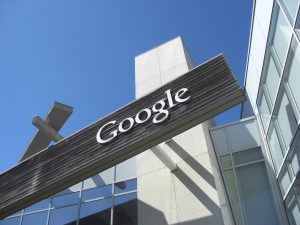Google: Computing’s ADD child
![]() Google last week made a number of interesting announcements, many related to Android and its Google Drive and applications products. How many of these will actually become real and then live on is anyone’s guess.
Google last week made a number of interesting announcements, many related to Android and its Google Drive and applications products. How many of these will actually become real and then live on is anyone’s guess.
If it’s not the search engine, self-driving automobiles or creepy glasses, Google’s attention span can be very limited. Things that once were Google’s “big deals” arrive with a splash and when they fail to gain traction, Google lets them slide with no new features and they eventually die.
This week’s entry into Slate’s Google Graveyard is Orkut, its briefly pioneering, then neglected, social network. Orkut, we hardly knew ye!
Google also has a way of letting things idle for long periods — Apps is a good example — before surprisingly releasing a new version or update. This week, Doc, Slides and Sheets seem to be back on the front burner, but what will next quarter or next year hold?
Only on rare occasions does Google show what looks like actual commitment to one of its slow children. Google+ is nothing special, but does seem to be getting support. Yet, if Google+ just went away, the Force would experience only the slightest of disruptions.
You many also remember Google’s foray into the wireless hardware business with HTC and Motorola. ‘Nuff said about those.
Takes one to know one
It is no secret to those who know me that I have Attention Deficit Disorder. I’ve had it all my life, wasn’t diagnosed until my 30’s and it has impacted every aspect of my life. If I could change one thing, I’d choose to not be ADD.
Back when I was a child and teen, ADD was not widely diagnosed, although being nicknamed “motormouth” by my pediatrician should, perhaps, have been a red flag for my parents. My school never seemed very interested.
My point is not “woe is me” but that when I look at Google, I sometimes see a bit of myself. Flitting from project to project, hyper interested in some things while letting others slide. Total dedication to what’s interesting (at time) sometimes overwhelming what’s been promised.
This personal experience allows me to diagnose Google as a company suffering from ADD. It also allows me to make a negative ADD diagnosis of another company: Microsoft.
Compare and contrast. Microsoft is known for committing to things, screwing up, recommitting, screwing up some more, lather, rinse and repeat. Think of Windows releases, Bing, telephones and tablets as prime examples. Especially with phones and tablets, Microsoft has been wandering around for many years, never finding the path of success. Be we know they will continue the quest.
Microsoft may be wrong in many cases, but no one can question its lack of commitment to the search.
Blame it on the media
Many of Google’s failures, to be fair, are notable only because of the media attention heaped on their introductions. For a time, anything Google released was so hyped by the tech media that it almost had to disappoint when it’s market performance was only average. Google Latitude and Google+ certainly had their honeymoons before being brought down to reality.
Likewise, Google Knol, Sidewiki and FastFlip. If you don’t remember those, the Slate graveyard has links to Wikipedia entries for every tombstone it displays. Google also used to be into radio and television advertising and radio programming, all of which seem to be totally forgotten. Probably just as well.
- Let’s wait and see
This is not intended as disrespecting the big G so much as urging caution when considering any Google announcement and the long term staying power of whatever is described.
photo credit: Siebuhr via photopin cc
A message from John Furrier, co-founder of SiliconANGLE:
Your vote of support is important to us and it helps us keep the content FREE.
One click below supports our mission to provide free, deep, and relevant content.
Join our community on YouTube
Join the community that includes more than 15,000 #CubeAlumni experts, including Amazon.com CEO Andy Jassy, Dell Technologies founder and CEO Michael Dell, Intel CEO Pat Gelsinger, and many more luminaries and experts.
THANK YOU













